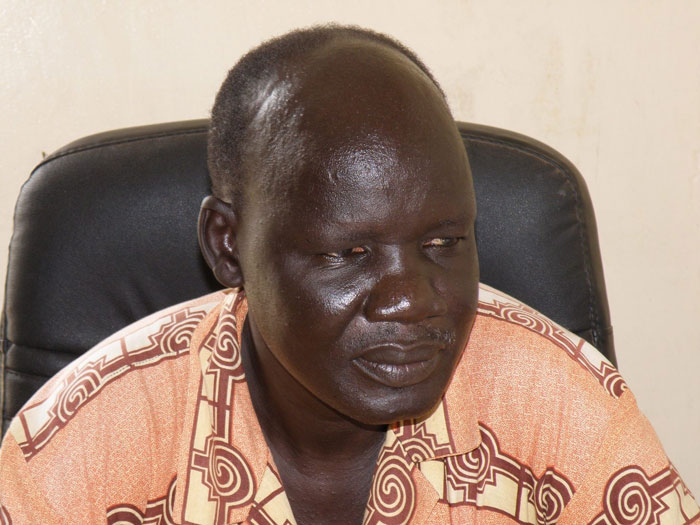‘I am Reverend James Kuong Ninrew. My age now is 48 years. I was born in Western Upper Nile; the particular place is Adok, which is now part of Ler County in Unity State.’

Voices of the victims – Interview
Now I am a pastor in the Presbyterian Church of Sudan. My area is Payinjiar Parish, far south in Unity State. My wife is currently in Bentiu, some of my children are in Nairobi for their schooling. I have seven children.
In 1995 my church assigned me to Koch County. It was a contested area between the Government of Sudan and the SPLA.
This Government of Sudan needed to clear the area, they said from the SPLA, but actually there were no SPLA in the area. They were moving civilians.
Before the oil company moves into a location, that location must be secured. “Securing” is to send in army troops to clear the area and once people – the oil company – feels it is secure enough for them and there are no inhabitants, they come in.
Lundin: of course they were the one. At the time we did not know exactly but we later came to know the names.
The clearing was done in a systematic way. First of all they came with Antonovs, and then they come with helicopter gun ships. There was random shelling of the villages, shelling even of cows. Once they see some of these animals on the ground, they know there are people also living there.
So, first they install fear in the people. Then the next step is to send ground troops. It was the Sudan Government soldiers officially and then their allies, the militias.
The ground troops checked from village to village, house to house. People ran away. The soldiers would wait to see if people would come back to their homes. Then one or two months later they would do the same thing again, until people ran away for their lives and did not come back again.
Many of these incidents ended in my compound, people ran into the church. They thought that the soldiers would not destroy the church. But it happened: they burnt churches. There was no safe place. Even women and children were killed in this indiscriminate kind of killing.
I saw one incident when women and children were killed in the distribution of food. Even the United Nations World Food Program was there. This one was documented.
The first things to be destroyed were always the tukhuls. In those days there was a kind of Kalashnikov that would light houses immediately. In my family we lost at least seven in Koch and another seven in Leer.
As communities we lost a lot of grazing areas. During that period the whole of Block 5A and 5B, half of those areas were under the companies and there was no access to it. We have all lost a lot of cattle.
Farmland was also lost. For my family this was between 10 and 15 feddans. The war situation could not allow access to so many markets. But the land was enough to sustain us, to sustain our families we got a little out of selling the milk, selling the cows, the crops. Every year the lowest that could come if you turned it into cash that could come into 12,000 Sudanese pounds.
But because of the fighting, we could not stay there any longer. I evacuated the family to Nairobi. I came and went.
I lost a brother, I lost also a sister, I lost a mother-in-law, I lost one of my cousins, all this. My mother-in-law was being chased away, she was running for her life and in the process she drowned. My brother was shot. The others were also gunned down by the Sudan Army.
That is directly my family. If you look at the whole (Koch) community I guess 20 to 30 percent of the population has gone. That would be, I think, 2,000 to 3,000 people. These are civilians not soldiers. This is from the clearing.
As a family we went back only after the CPA. Koch was empty. There was nothing there. The people had to start from zero. The oil installation is still there. Some of the land is occupied still by the oil companies. Other people have taken the land. There are a lot of land disputes now.
I have the right to compensation. And the whole community has the right. Together with some others I have opened up a case against Talisman. But it is a very big, very powerful company.
You know you can talk to 10,000 people and they will all have the same story as my one.
Of course our Government in the south and the Government in the north are the same. They are the ones who signed the CPA together and they don’t want to enter into the issue of compensation that but we as a community are crying and nobody is hearing us.”
Interview by Skye Wheeler, Sudan-based journalist
Juba, August 23, 2008



